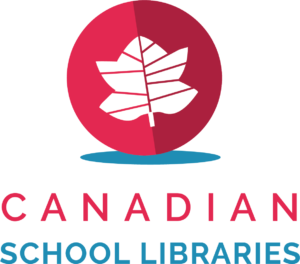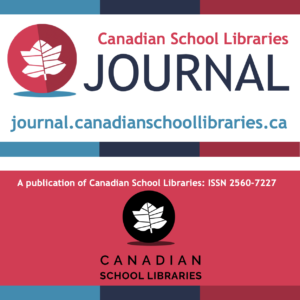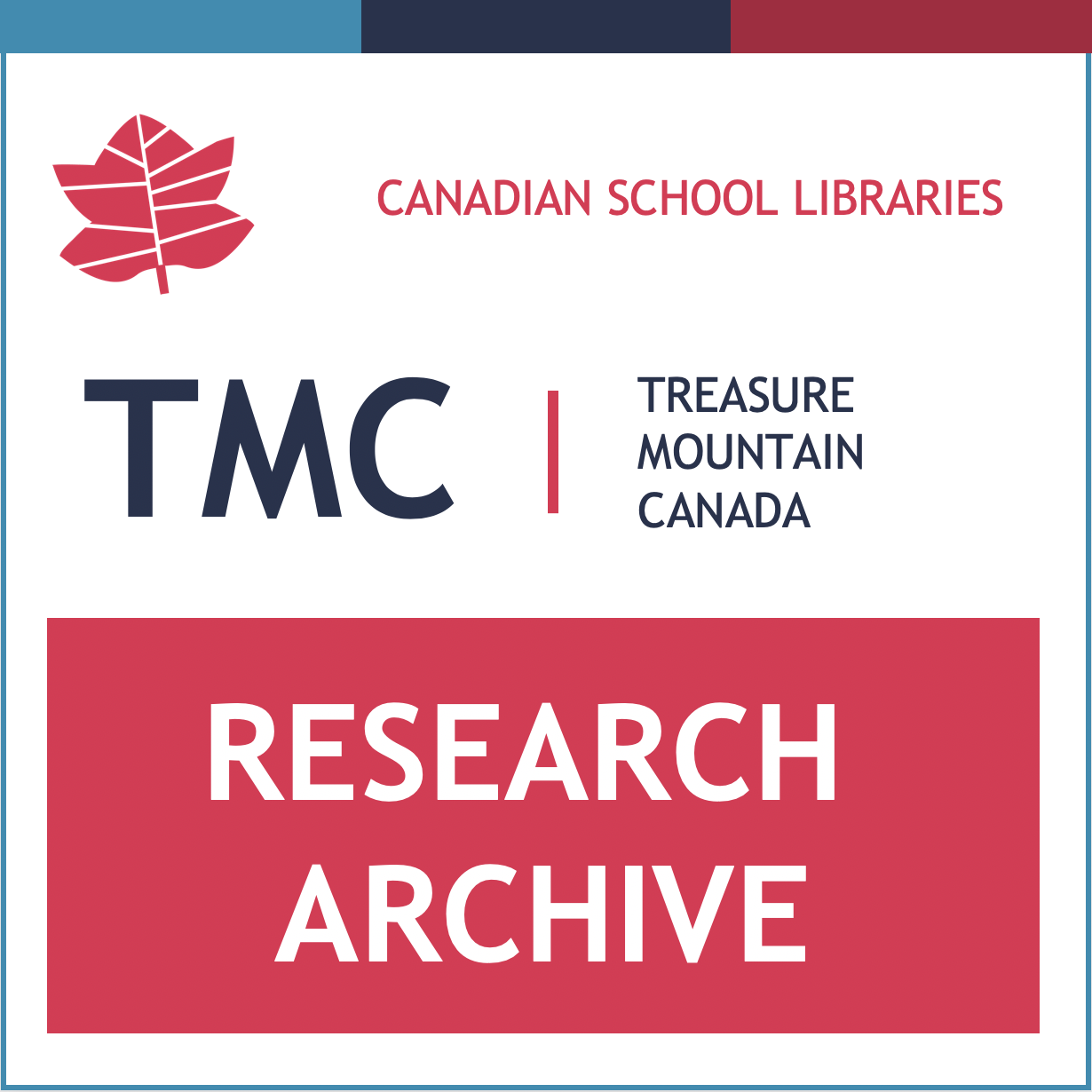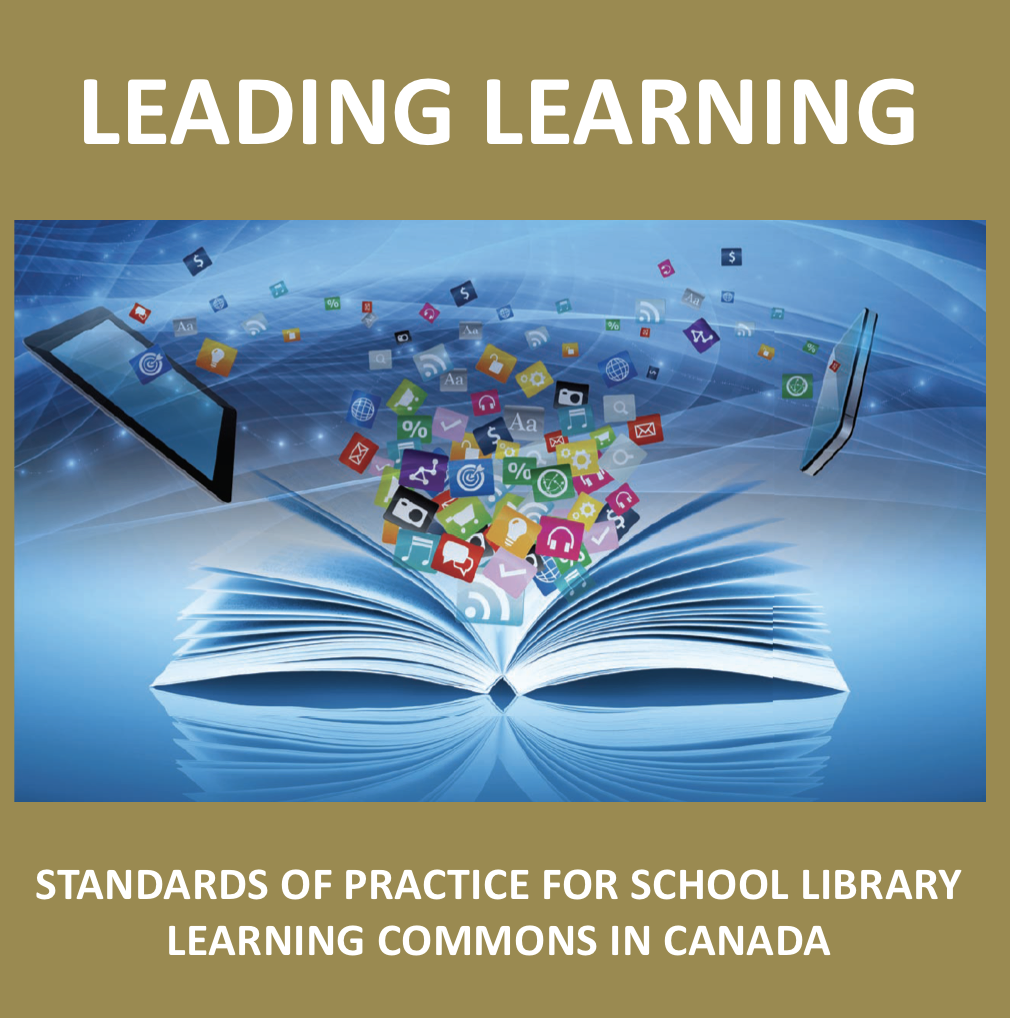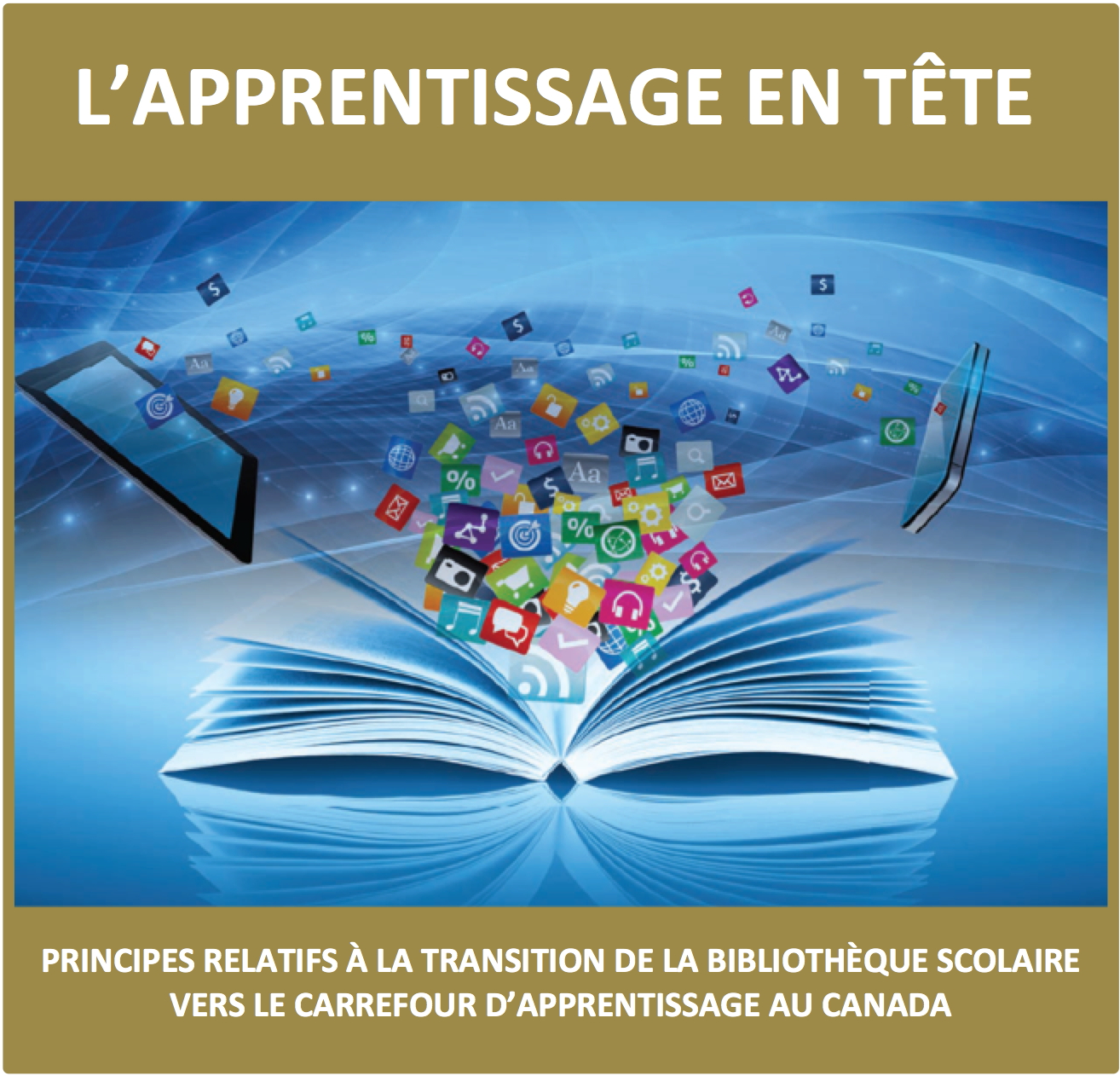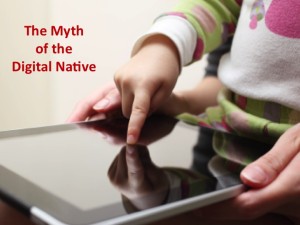 For the past several years I’ve been on a bit of a mission to bust what I perceive to be a myth – the myth of the digital native / digital immigrant divide. How often have you heard (or said), “The kids know so much more about technology than I do!”, or something to that effect. And too often this perceived divide, combined with teachers’ own perceived lack of knowledge morphs into an excuse not to use technology for learning.
For the past several years I’ve been on a bit of a mission to bust what I perceive to be a myth – the myth of the digital native / digital immigrant divide. How often have you heard (or said), “The kids know so much more about technology than I do!”, or something to that effect. And too often this perceived divide, combined with teachers’ own perceived lack of knowledge morphs into an excuse not to use technology for learning.
The truth seems rather more obvious to me. Most kids are indeed very comfortable with mobile devices and social technology – after all, they’ve grown up with them! And because their use of this technology is mostly framed within the context of their everyday lives outside of school, kids’ knowledge can be quite sophisticated in areas that really matter to them – social engagement and entertainment.
What the Research Tells Us
New research from Canada’s MediaSmarts, and elsewhere confirm many of my suspicions. It turns out that kids are generally more skilled and knowledgeable in some areas than adults often give them credit for, like privacy and understanding cyberbullying. It turns out, too, that kids are far less active or knowledgeable in some areas than might generally be perceived, like the creative uses of online technologies and information literacy.
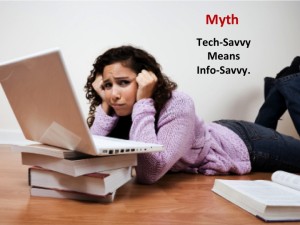 Competencies and Context
Competencies and Context
Being comfortable with technology does not translate into deeper context skills, like assessing the quality of information, using technology for creative expression, and ethical use of information. MediaSmarts’ research in particular indicates that our students are thirsty to learn about these deeper contexts. This of course presents a huge opportunity to make strong connections for technology-enabled learning in school, supported by the role of the library as a learning commons and the teacher-librarian’s role as information specialist, instructional leader, and technology coach.
The teacher-librarian’s role as a peer coach may be the most critical of all. There is evidence from the research that teachers generally lack confidence in their own technology skills, and that this often prevents them from using it meaningfully in their teaching practice. Unleashing the potential of social and mobile technologies in schools depends on breaking down these barriers, and the teacher-librarian is very well-positioned to help other teachers make connections to the curriculum and an inquiry approach to learning.
Exploring the Potential at TMC 2014
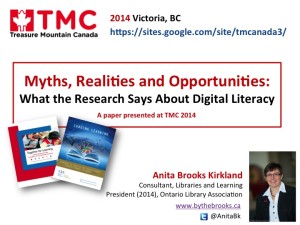 I recently wrote a paper on this topic, and presented it at Treasure Mountain Canada 2014 (TMC 2014), a national research symposium focused on the school library learning commons. The title of the paper is: Myths, Realities and Opportunities: What the Research Says about Digital Literacy. You can download the full paper and link to the proceedings and papers from TMC 2014 on this page. I have also summarized the paper in this video presentation.
I recently wrote a paper on this topic, and presented it at Treasure Mountain Canada 2014 (TMC 2014), a national research symposium focused on the school library learning commons. The title of the paper is: Myths, Realities and Opportunities: What the Research Says about Digital Literacy. You can download the full paper and link to the proceedings and papers from TMC 2014 on this page. I have also summarized the paper in this video presentation.





